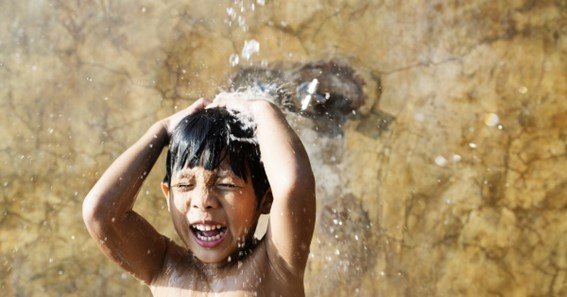For children on the autism spectrum, sensory experiences can vary widely, making daily activities like showering uniquely challenging. Introducing cold showers may offer certain benefits but also poses specific risks due to individual sensory sensitivities.
Potential Benefits of Cold Showers for Autistic Children
- Anxiety and Stress Reduction: Cold showers can stimulate the parasympathetic nervous system, promoting relaxation and potentially reducing anxiety levels. This effect may be beneficial for autistic children who often experience heightened anxiety.
- Enhanced Focus and Attention: Exposure to cold water may increase norepinephrine levels, a neurotransmitter linked to improved attention and focus. Some parents report that their children show better concentration after cold showers.
- Sensory Regulation: For children who are under-responsive to sensory input, the invigorating sensation of cold water can serve as a form of sensory regulation, enhancing physical awareness.
- Mood Enhancement: Cold showers are associated with the release of endorphins, which can alleviate symptoms of depression and improve overall mood. This may be particularly beneficial for autistic children prone to mood swings.
Risks Associated with Cold Showers for Autistic Children
- Sensory Overload: The shock of cold water can lead to sensory overload, causing increased anxiety or discomfort, especially in children sensitive to temperature changes.
- Increased Anxiety: Unfamiliar sensations from cold showers may heighten stress levels in some autistic children, potentially exacerbating anxiety rather than alleviating it.
- Disruption of Routines: Introducing cold showers can alter established routines, which may be distressing for children who thrive on predictability.
Alternative Sensory Therapies
- Warm Water Baths: Warm baths can provide a soothing experience, relaxing muscles and reducing anxiety without the potential shock associated with cold water.
- Weighted Blankets: Offering deep pressure stimulation, weighted blankets can calm the nervous system and serve as a gentler alternative for sensory regulation.
- Therapeutic Play: Engaging in sensory-friendly activities like playing with kinetic sand or textured materials can help children regulate sensory input in a controlled manner.
Conclusion
While cold showers may offer certain benefits, they are not universally suitable for all autistic children. It’s crucial to consider each child’s unique sensory profile and consult with healthcare professionals before introducing new sensory therapies. Prioritizing the child’s comfort and well-being is essential in determining the most appropriate approach.
FAQ
- Can cold showers help reduce anxiety in autistic children?
- Cold showers may stimulate the parasympathetic nervous system, promoting relaxation and potentially reducing anxiety. However, individual responses vary.
- Are there risks associated with cold showers for autistic children?
- Yes, risks include sensory overload, increased anxiety, and disruption of established routines.
- What are alternative methods for sensory regulation?
- Alternatives include warm water baths, weighted blankets, and sensory-friendly play activities.
- Should I consult a professional before introducing cold showers?
- Absolutely. Consulting with healthcare professionals ensures that any new therapy aligns with your child’s specific needs.
- How can I determine if cold showers are suitable for my child?
- Observing your child’s reactions to temperature changes and seeking professional advice can help determine suitability.
By carefully evaluating the potential benefits and risks, and considering alternative therapies, you can make informed decisions about incorporating sensory activities like cold showers into your autistic child’s routine.
Uncover something cool here mypres-login










